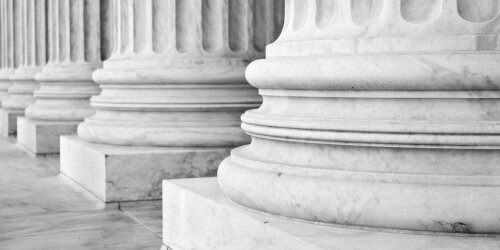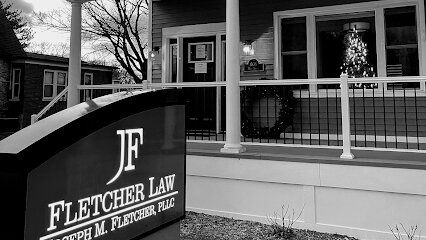Best Arrests & Searches Lawyers in New York City
Share your needs with us, get contacted by law firms.
Free. Takes 2 min.
List of the best lawyers in New York City, United States
1. About Arrests & Searches Law in New York City, United States
Arrests and searches are governed by a mixture of federal constitutional protections and state level statutes. The Fourth Amendment protects individuals from unreasonable searches and seizures, and New York law adds detail through the Criminal Procedure Law and the State Constitution. In New York City, police powers are exercised by the NYPD under state law, with many rules about when and how searches may occur and what evidence may be admissible in court. Understanding the basics helps you know when to seek legal counsel.
In practice, common scenarios involve stop and frisk encounters, searches incident to arrest, consent searches, and searches pursuant to warrants. NYC residents should know that evidence obtained through unlawful searches can often be suppressed, which is a central issue in many criminal cases. Court process, motion practice, and potential remedies depend on the specific facts and jurisdiction.
“The Department of Justice found that the New York City Police Department's stop-and-frisk practices raised serious constitutional concerns and required policy reforms.” - U.S. Department of Justice, Civil Rights Division
Source: Department of Justice findings regarding policing practices in New York City, including patterns of stops and searches (DOJ). This historical context informs ongoing reforms and oversight in arrest and search procedures in NYC.
For a clear overview of how arrest procedures translate into courtroom steps in New York City, consult official state and city resources on arrests, arraignments, and criminal procedure.
2. Why You May Need a Lawyer
- During a street stop that ends with a search or arrest, you suspect the stop was unlawful and want to evaluate suppression of evidence and possible case dismissal.
- Your home or apartment was searched following a warrant that you believe was illegally issued, lacked probable cause, or was improperly executed.
- You were charged with possession or related offenses based on items found during a search and you need to challenge the search or the chain of custody.
- A consent search occurred after a police request where you were unsure if you could refuse; you want to determine if consent was valid and voluntary.
- A stop or search involved a juvenile, or you were involved in a stop-and-frisk situation with questions about rights and exclusions from evidence.
- You are facing suppression motions, pre-trial motions, or potential appeals tied to search warrants or the legality of the police procedures used.
3. Local Laws Overview
New York law combines federal constitutional protections with state statutes to regulate arrests and searches. Below are two to three key laws you should know, along with context for how they apply in NYC.
- New York Criminal Procedure Law Article 690 - Search Warrants - Sets forth how warrants are issued, what must be shown, how warrants are served, and how returns are handled. This article governs warrant-based searches in New York State, including NYC. Official text can be found on New York State legislative sites.
- New York Criminal Procedure Law Section 140.50 - Stop and Frisk - Codifies the permissible scope of stops and frisks and the required standards of suspicion. This provision is central to street encounters in NYC and has been the subject of extensive reform and oversight.
- New York Constitution Article I, Section 6 - Protects against unreasonable searches and seizures at the state constitutional level, reinforcing limits on police actions within NYC and throughout New York.
Recent developments in this area emphasize proper procedure and oversight. For example, federal oversight historically prompted reforms to stop-and-frisk practices in New York City, and state reforms continue to influence how searches are conducted and challenged in court. See the sources cited for official text and overview.
Useful references for the exact statutory text include the New York Senate law pages and the official New York City and state resources linked below.
4. Frequently Asked Questions
?What is a stop and frisk and when is it allowed?
A stop and frisk is a police stop based on reasonable suspicion followed by a quick frisk for weapons. It must be narrowly tailored to address safety concerns. If the stop is unlawful, the stop itself and any discovered evidence may be excluded.
?What is the difference between an arrest and a detainment?
An arrest involves taking a person into custody and charging them with a crime. Detention during a stop does not automatically lead to an arrest; it may require additional justification to justify continued detention.
?How do I know if a search warrant was valid?
A valid warrant must be supported by probable cause, be issued by a neutral magistrate, and describe the place to be searched and items to be seized with particularity. A challenge can be raised if any requirement is lacking.
?Do I need a lawyer for a suppression motion?
Yes. A lawyer can evaluate whether the evidence should be suppressed under the Fourth Amendment and state law, and file appropriate motions to suppress or limit evidence at trial.
?How much does it cost to hire a arrests and searches attorney?
Costs vary by firm and case complexity. Expect initial consultations to range from free to a modest fee, with retainer agreements outlining hourly rates and any flat fees for specific motions.
?What is the timeline for a typical suppression motion in NYC?
Suppression motions often occur within 1-6 weeks of arraignment, depending on court scheduling, the nature of the motion, and the complexity of the issues involved.
?Do I qualify for public defense in a stops and searches case?
Qualifying for public defense depends on income, assets, and case type. If you cannot afford private counsel, contact the court or the public defender's office for guidance.
?What’s the difference between a search warrant and a consent search?
A search warrant is judicial authorisation based on probable cause. A consent search relies on voluntary agreement from the person in control of the premises.
?When should I challenge the legality of a stop or search?
Consider challenging promptly if you believe your rights were violated or evidence was obtained unlawfully. Timely motions can preserve suppression rights.
?Can evidence obtained in a warrantless search be used in NYC court?
It depends on the circumstances and exceptions to the warrant requirement. In most cases, unlawfully obtained evidence may be excluded unless an exception applies.
?Is a police body camera recording useful in a case involving arrests and searches?
Yes. Body camera footage can corroborate or contradict officers’ accounts and is often crucial in evaluating constitutional challenges and witness statements.
5. Additional Resources
- New York City Civilian Complaint Review Board (CCRB) - Independent oversight of police misconduct and handling of complaints related to stops, searches, and use of force.
- New York City Police Department (NYPD) - Official policy materials and general information on stops, searches, and permissible police actions in NYC.
- New York State Attorney General (ag.ny.gov) - Resources on policing practices, civil rights, and legal rights during stops and searches.
- New York State Unified Court System (nycourts.gov) - Official information on arrest procedures, arraignments, court process, and motions to suppress evidence.
- U.S. Department of Justice Civil Rights Division (justice.gov/crt) - Federal oversight and information on policing practices and constitutional rights.
6. Next Steps
- Document your incident clearly. Write down dates, times, locations, officers involved, and any witnesses as soon as possible.
- Identify NYC-based arrest and searches attorneys or firms with experience in suppression motions and post arrest motions. Check bar status and disciplinary history.
- Schedule confidential consultations within 1-2 weeks. Bring all relevant documents, including arrest reports, any warrants, and notices from the court.
- Ask about fees, retainer terms, and anticipated timelines for motions and hearings. Request a written plan for your case, including potential outcomes.
- Decide on a strategy with your attorney. Discuss suppression options, potential plea implications, and trial versus motion practice timelines.
- Enter into a retainer agreement once comfortable. Provide your attorney with all discovery materials and relevant evidence.
- Follow your lawyer’s guidance and maintain communication. Prepare for court appearances and any deadlines set by the court.
Jurisdiction-specific notes: If you are facing an arrest or a search in NYC, you should consider speaking with a solicitor who understands New York Criminal Procedure Law (CPL) and the New York Constitution. Always verify counsel’s familiarity with local court practices and post arrest workflows in the City you are in, such as Manhattan, Brooklyn, Queens, The Bronx, or Staten Island.
Sources and further reading: Stop and Frisk background: U.S. Department of Justice, Civil Rights Division - Floyd investigation and related policies in New York City. https://www.justice.gov/crt/opa/pr/justice-department-finds-racially-discriminatory-stop-and-frisk-practices-new-york-city
Statutory text references: New York Criminal Procedure Law (CPL) - full text New York Constitution, Article I
Lawzana helps you find the best lawyers and law firms in New York City through a curated and pre-screened list of qualified legal professionals. Our platform offers rankings and detailed profiles of attorneys and law firms, allowing you to compare based on practice areas, including Arrests & Searches, experience, and client feedback.
Each profile includes a description of the firm's areas of practice, client reviews, team members and partners, year of establishment, spoken languages, office locations, contact information, social media presence, and any published articles or resources. Most firms on our platform speak English and are experienced in both local and international legal matters.
Get a quote from top-rated law firms in New York City, United States — quickly, securely, and without unnecessary hassle.
Disclaimer:
The information provided on this page is for general informational purposes only and does not constitute legal advice. While we strive to ensure the accuracy and relevance of the content, legal information may change over time, and interpretations of the law can vary. You should always consult with a qualified legal professional for advice specific to your situation.
We disclaim all liability for actions taken or not taken based on the content of this page. If you believe any information is incorrect or outdated, please contact us, and we will review and update it where appropriate.
















